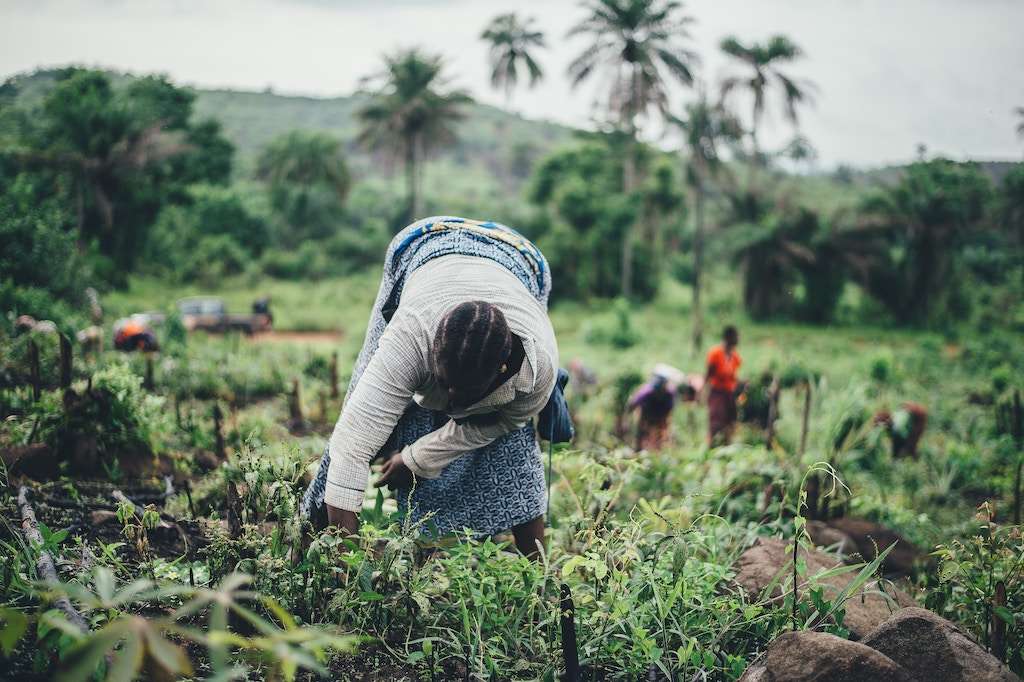A new report issued by The Rockefeller Foundation, calls for more constructive steps to be taken in leveraging resources to end global hunger and build sustainable food security amid the ongoing global food and nutrition crisis.
The report, entitled Anticipate and localize: Leveraging humanitarian funding to create more sustainable food systems, recommends a shift in approaches to align more closely with solutions that strengthen food system resilience to climate change, conflict, and other factors. It is the second of four reports that will present a unified roadmap for achieving global food and nutrition security.
The report highlights that, despite the enormous resources deployed, coordination is weak, and major shortcomings have included a failure to anticipate crisis and invest proactively, a failure to tailor aid to local needs through local partners, and a failure to join the funding “dots.” As a result, there are concerns that humanitarian food assistance, as currently structured and delivered, is not the way to achieve resilient and sustainable food security.
“If the world does not act now, there will be as many hungry people in 2030 as there were in 2015, a devastating backslide – and one that could accelerate amid the worsening climate crisis,” Dr. Rajiv J. Shah, President of The Rockefeller Foundation, said in a statement.

The report’s recommendations call for four key actions to be taken. Firstly, it urges donors to spend one percent of their 2024 budgets on anticipatory action and smarter investments, increasing that share by one percent for the next ten years. Furthermore, investments must be smarter than in the past, helping farmers to rapidly adapt to climate change, including through a focus on regenerative agriculture.
Secondly, the report recommends funding localization by increasing the share of funding that goes to local organizations to 25 percent of their total expenditure over the next five years. This would support the role of local communities as effective first responders. National governments are urged to invest a similar share of their spending on domestic food security in local approaches.
Thirdly, the report calls for cracking funding siloes by establishing United Nations country teams that unify funding and strategies that address humanitarian need, social and economic development, and peace, including in food insecurity hotspots affected by armed conflict.
Lastly, the report calls for making the investment case through a campaign to put under-utilized working solutions to the test in a real-time situation of food insecurity.
“We have the largest humanitarian appeals, the largest numbers of people who are food insecure and the largest funding gaps in history,” said Carol Bellamy, writer of the report and former Executive Director of United Nations Children’s Fund (UNICEF). “The numbers force new thinking about how we can both improve the effectiveness of existing aid and also reduce the need for aid through building more sustainable food systems.”
In addition, the report calls for weaving three common threads into every policy, program, and approach: a gender lens, the meaningful inclusion of those most directly affected by food insecurity, and intensive collaboration.
The report draws on insights from The Rockefeller Foundation-sponsored Convening Group on Funding for Sustainable Food Security, in which nearly two dozen experts in food insecurity and food aid from around the world examined how best to mobilize and leverage funding to ensure food security for all.

The report’s recommendations break with funding orthodoxy, and the authors recognize that millions of people are in desperate need of food assistance today, and as aid is delivered, it is critical to invest in systemic change that will build sustainable food security in the longer term. To solve these interconnected global challenges, governments and organizations must be willing to abandon cherished notions of what works for them in favor of what can work to bring food security to all.
“The sliver of funding that went to sustainable solutions demonstrates the most dangerous gap of all: the gap between short-term thinking and long-term solutions,” said Catherine Bertini, Managing Director, Global Nutrition Security at The Rockefeller Foundation, former Executive Director of the World Food Programme, and 2003 World Food Prize Laureate. “Until we address the underlying issues of the resilience and sustainability of food systems, the need for humanitarian food aid will continue to escalate.”
Dr. Shah says the goal of ending hunger “once and for all” is still achievable, but it requires stakeholders coming together “in public-private-philanthropic partnerships behind big bets to scale innovative solutions.”
Related on Ethos:


